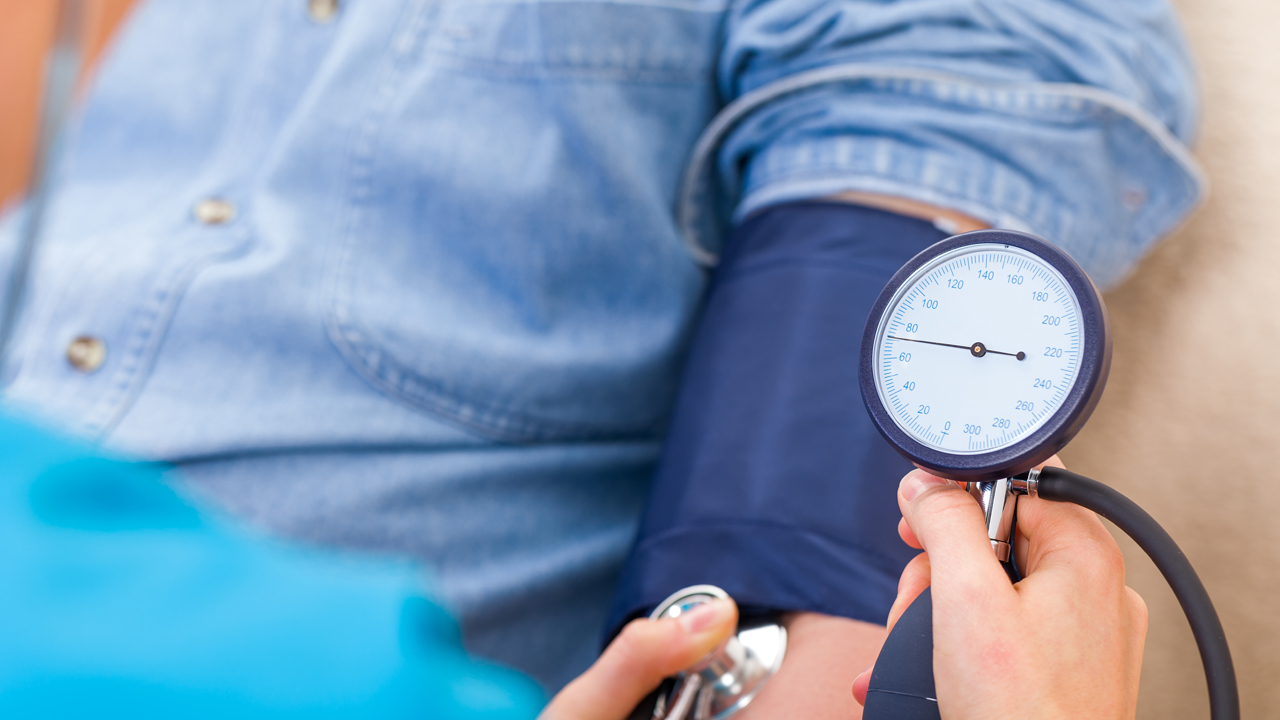In Clinical
Follow this topic
Bookmark
Record learning outcomes
Provision and background
The NHS Community Pharmacy Blood Pressure Check Service, also known as the NHS Community Pharmacy Hypertension Case-Finding Advanced Service, aims to identify people aged 40 years and older with undiagnosed hypertension and refer them to their GP to confirm diagnosis and arrange management. This stage is often referred to as a “clinic check”.
A second stage of the service enables pharmacies to, where clinically appropriate, offer 24-hour ambulatory BP monitoring and share the results with the patient’s GP. This stage is often referred to as “ABPM”. Both stages of the service must be made available; pharmacies cannot only provide clinic checks.
The service also provides opportunities for promoting healthy behaviours – for example the importance of physical activity; stopping smoking; limiting the intake of alcohol, caffeine, fats and salt; increasing the amount of fruit and vegetable and fibre-rich foods in the diet; and losing weight if appropriate. Anyone who has low blood pressure may benefit from advice around the care needed when moving from lying or sitting to standing, increasing fluid intake, limiting caffeine and alcohol, and eating small frequent meals.
Hypertension is the biggest risk factor for cardiovascular disease, which is one of the leading causes of premature death and disability in England. An estimated 5.5 million people have undiagnosed hypertension. It is also a key driver in health inequalities, with those living in the most deprived areas 30 per cent more likely to have hypertension than those in the least deprived areas, and also less likely to access NHS services. Blood pressure monitoring through community pharmacies has the potential to address both of these issues.
In the first six months of the service (October 2021 to April 2022), over 115,000 clinic checks and nearly 5,000 ABPMs were carried out. This compares to over 146,000 and 6,700 in the first three months of the current financial year, and nearly 217,000 and over 9,600 in the second quarter (the latest for which figures were available as this article went to press).
Funding and conditions of service
- Set-up fee of £440
- Clinic check fee of £15
- Ambulatory blood pressure monitoring (ABPM) fee of £45
- £1,000 was payable for pharmacies providing at least five ABPM interventions in 2021-22
plus £400 per year can be claimed if a minimum of 15 ABPM interventions are provided in 2022-23 and 20 in 2023-24 - Contractors signing up after 2021-22 must achieve the ABPM threshold for the given financial year in order to receive £1,000 as the first incentive payment.
- Equipment used must be validated by the British and Irish Hypertension Society (BIHS) and maintained in line with the manufacturer’s instructions
- Infection control measures and cleaning must be carried out
- The service must be provided from a consultation room that has space for the patient to rest their arm at a suitable height for the BP measurement and IT equipment available to make contemporaneous records using the NHSBSA MYS portal
- Provision outside the pharmacy – for example in community locations – is only allowed if agreed with NHS England regional teams
- Patients must be over 40 years and not under hypertension management or regular BP monitoring elsewhere unless referred from a GP practice for a BP check (for example, a woman on oral contraception) or requesting the service due to a family history of hypertension
- A month’s notice must be given if a decision is made to stop providing the service.
Monitoring and next steps
| BP monitoring outcome | Next step |
|
BP between 90/60 and 140/90mmHg at clinic check BP between 90/60 and 135/85mmHg following ABPM BP under 90/60mmHg but patient asymptomatic |
Communicate result to GP within a week |
|
BP between 140/90 and 180/120mmHg at clinical check but patient does not tolerate or want ABPM BP between 135/90 and 150/95mmHg following ABPM BP under 90/60mmHg and patient has dizziness, nausea or fatigue |
Communicate result to GP the same day and advise patient to make a GP appointment within three weeks |
|
BP above 180/120mmHg at clinic check BP above 150/95mmHg following ABPM BP under 90/60mmHg and patient at risk due to symptoms (e.g. of injury due to a fall) |
Communicate result to GP the same day and inform patient that an urgent same-day GP appointment is needed. Pharmacist to call practice if open or signpost to alternative provision (e.g. A&E) |

